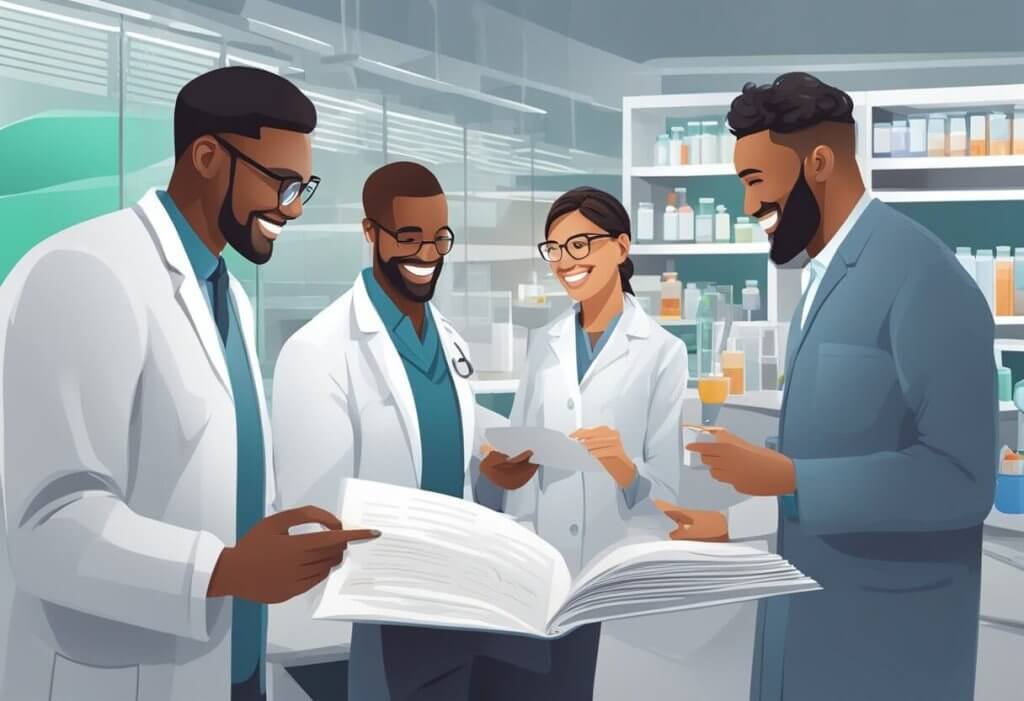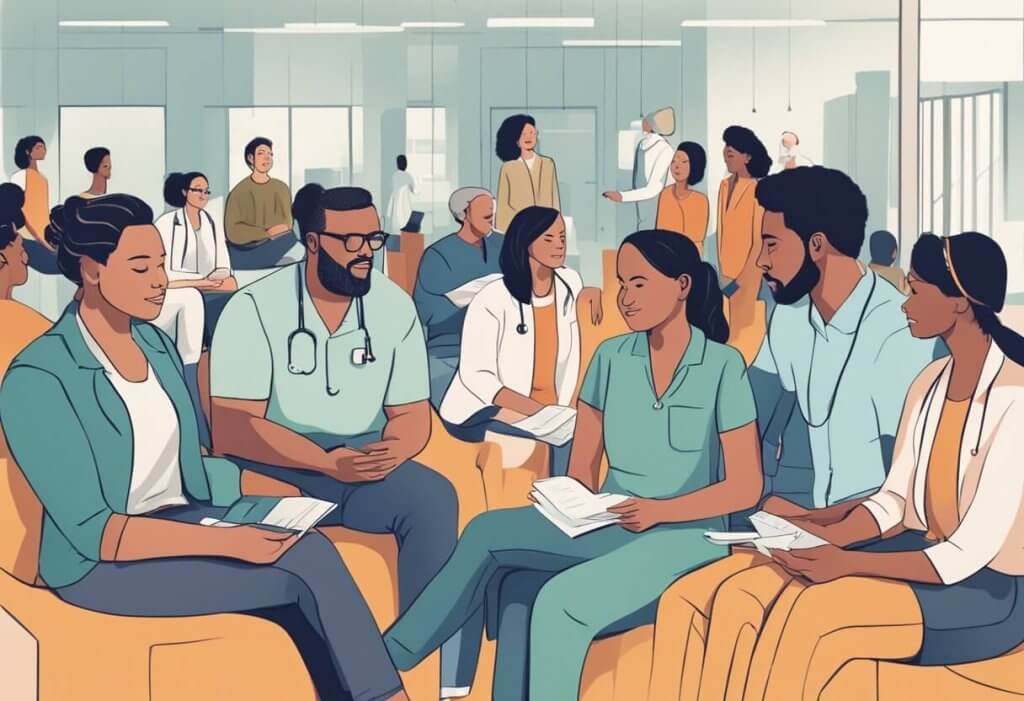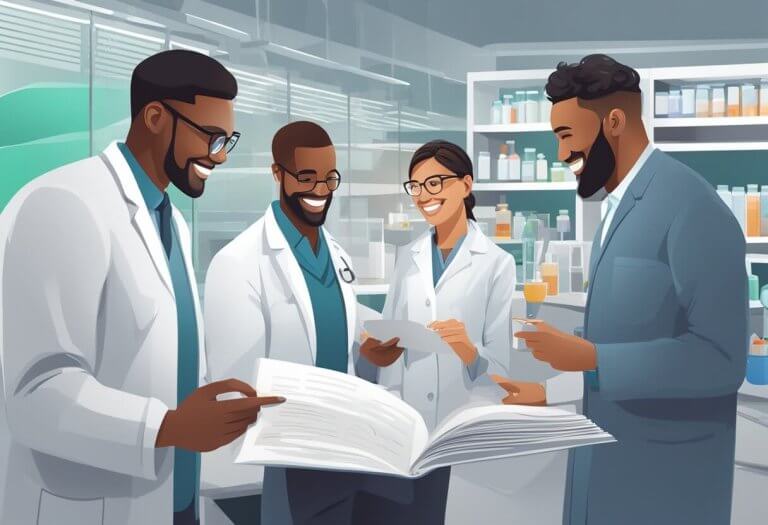Understanding the Difference in Health Claims
In the realm of medicine and drug approvals, the contrast between anecdotal evidence and rigorously reviewed FDA approval processes is stark. When it comes to exploring potential new treatments, personal accounts are often the starting point. Take CBD (Cannabidiol), for instance—many people have shared their experiences using this natural compound derived from the cannabis plant for various conditions.
Anecdotal evidence, essentially stories, and experiences of individuals, often plays a role in the early stages of evaluating a medical treatment or drug efficacy. These personal accounts can offer initial insights or suggest trends that may merit further exploration.
However, this type of evidence is inherently limited by its subjective nature and the lack of control over variables that high-standard clinical trials are designed to manage.

On the other hand, the FDA approval process for drugs is a meticulous and structured procedure, which typically includes preclinical research followed by a series of clinical trials to ensure that a drug is safe and effective before it reaches the public.
The FDA is increasingly recognizing real-world evidence as a valuable tool for understanding how drugs work outside of the controlled conditions of clinical trials. Although rigorous, these processes are crucial for protecting patients from potential harm and ensuring that treatment decisions are based on reliable information.
Key Takeaways
- Anecdotal evidence is subjective and based on individual experiences, while FDA drug approvals are grounded in scientific research and trials.
- The FDA incorporates real-world data to complement traditional clinical trial results during the drug approval process.
- Differences between anecdotal evidence and FDA review carry significant implications for both medical practitioners and patients.
Understanding Anecdotal Evidence and FDA Drug Approval Processes

This section navigates the contrast between the informal nature of anecdotal evidence and the structured FDA drug approval process. It examines the impact both have on public perception and regulatory practices.
Nature of Anecdotal Evidence
Anecdotal evidence is frequently based on personal narratives and experiences, such as information one might gather from a friend’s story or a personal testimonial. However, this evidence tends to be subjective and less reliable, as it lacks the rigorous testing and statistical analysis that characterizes scientific evidence. Anecdotes do not necessarily represent typical user experiences, but they can sway public opinion and sometimes suggest avenues for formal investigation.
Foundations of FDA Approval
The FDA’s mandate is to ensure that every drug, biologic, or medical device marketed in the United States meets strict criteria for safety and efficacy. The approval process involves multiple stages, including pre-clinical trials, phased clinical trials, a thorough review of clinical data, and post-marketing surveillance. These stages are built on a bedrock of substantial evidence from statistical analyses, systematic reviews, and meta-analyses.
“There are preliminary data that CBD may be a useful treatment for a number of medical conditions.”
Medical Cannabis – National Library of Medicine
Comparative Analysis of Evidence Types
When comparing the evidentiary value of anecdotes to FDA-approved scientific evidence, there’s a clear divide. Clinical trials generate data through controlled environments and use large sample sizes to obtain statistical evidence, while anecdotal evidence provides uncontrolled, often isolated incidents. The scientific standard for substantial evidence of effectiveness typically requires more robust, reproducible results.
Role of Regulation in Public Health
Regulation serves as the backbone of public health assurance, fostering trust in the products marketed for consumption. Regulatory agencies like the FDA employ stringent guidelines to assess health products’ safety, efficacy, and clinical benefits, including drugs and biologics. The 21st century has seen legislation like the 21st Century Cures Act and the Food and Drug Administration Modernization Act reinforce the need for agile yet thorough oversight in drug development.
Current Trends in Approval and Evidence-Gathering
In today’s world, factors such as the Accelerated Approval pathway and the inclusion of Real-World Data (RWD) shape the evolving landscape of drug approvals. Support for novel drugs in 2020 reflects the FDA’s adaptability, utilizing tools like surrogate measures and historical controls while maintaining the scientific rigor required for public health. Moreover, with the growth of biosimilars and therapeutic biologics, regulatory flexibility is increasingly critical in meeting the pressing needs of healthcare.
Implications for Stakeholders

Stakeholders in drug development and approval processes have unique concerns and expectations. This section explores how anecdotal evidence and FDA approval particularly influence different groups involved, including healthcare professionals, manufacturers, patients, and policy regulations.
Impact on Healthcare Professionals and Experts
Healthcare professionals and experts often rely on FDA-approved information to make treatment decisions. For such stakeholders, the rigor of FDA approval means confidence in the safety and efficacy of a drug or medical treatment. However, due to variability and lack of regulation, anecdotal evidence raises questions of reliability and trust, potentially influencing treatment effects.
Experts with deep expertise in disease and treatment effects need to sift through anecdotal and scientifically backed data, emphasizing the importance of engagement with regulatory agencies like the FDA and EMA to maintain the integrity of medical practice.
Manufacturers and Industry Perspective
Drug and biopharma manufacturers view FDA approval as a critical milestone in drug development, often indicative of a product’s quality and regulatory compliance. While anecdotal evidence can sometimes contribute to drug discovery, it represents a challenge in aligning with the stringent standards of scientific evidence required for approval.
Manufacturers are keenly aware that FDA engagement and meeting regulatory standards are essential for the success of any biological product. The 21st Century Cures Act, which introduced more flexibility in the consideration of real-world evidence, could possibly affect future regulatory decisions.
“As more clinical trials investigate CBD’s potential, health professionals will gain a better understanding of its benefits and risks.”
6 Potential Benefits of CBD (Cannabidiol) – Cleveland Clinic
Patients and Public Perspective
Patients and the public seek reliable information on treatment effects and disease management. Anecdotal evidence can influence their opinion and trust, but it also breeds skepticism due to possible inconsistencies with FDA-sanctioned data.
The patient community’s engagement with treatment options is often shaped by shared personal experiences, highlighting the need for clear and accurate communication from healthcare professionals. This reliance on anecdotal information underscores the importance of FDA approval in validating treatment claims.
Policy and Future Direction
Policy and regulatory frameworks are influenced by the balance between anecdotal evidence and FDA approval processes. Regulation plays a critical role in ensuring that drugs on the market are both safe and effective.
Flexibility in regulatory pathways, like the Accelerated Approval program, presents opportunities for faster access to crucial drugs yet demands vigilant post-market surveillance to uphold safety standards. Continuous policy evolution accommodates scientific advancement while protecting public health interests.
Frequently Asked Questions
The FDA drug approval process is rigorous and relies on objective evidence rather than anecdotal accounts. This section addresses common inquiries regarding the FDA’s evidence-based approval system.
Why can’t the FDA approve based on anecdotal evidence?
The FDA requires scientifically rigorous evidence to ensure a drug’s safety and efficacy, whereas anecdotal evidence is not systematically collected or verified and thus lacks the reliability needed for approval.
What’s the real difference between FDA clearance and FDA approval?
FDA clearance refers to a less stringent review process for medical devices that are substantially equivalent to an already legally marketed device. FDA approval is required for new drugs and high-risk medical devices, signifying a higher level of scrutiny.
How does PMA differ from the 510k process?
Premarket Approval (PMA) is the FDA process for evaluating the safety and effectiveness of Class III medical devices, which are high-risk. The 510k process, on the other hand, is for devices that are not as high risk and can be demonstrated to be substantially equivalent to a device already on the market.
Why might some products only need FDA compliance instead of approval?
Some products are subject to FDA regulations but may not require premarket approval or clearance. This usually applies to low-risk devices where compliance with FDA standards is sufficient to assure safety and effectiveness.
What are the various kinds of FDA approvals out there?
The FDA has several approval pathways, including a New Drug Application (NDA) for new pharmaceuticals, a Biologics License Application (BLA) for biological products, and a Humanitarian Device Exemption for devices intended to treat rare conditions.
Can you explain the 510k process compared to full FDA approval?
The 510k process is a review to ensure a medical device is safe and effective by comparing it to a legally marketed device. Full FDA approval involves a more comprehensive data review and is required for new drugs and some high-risk medical devices.
What does the FDA consider ‘objective evidence’ for product approval?
Objective evidence includes controlled clinical trials and other validated scientific studies. The FDA assesses this evidence to determine whether a product is safe and effective for its intended use.
